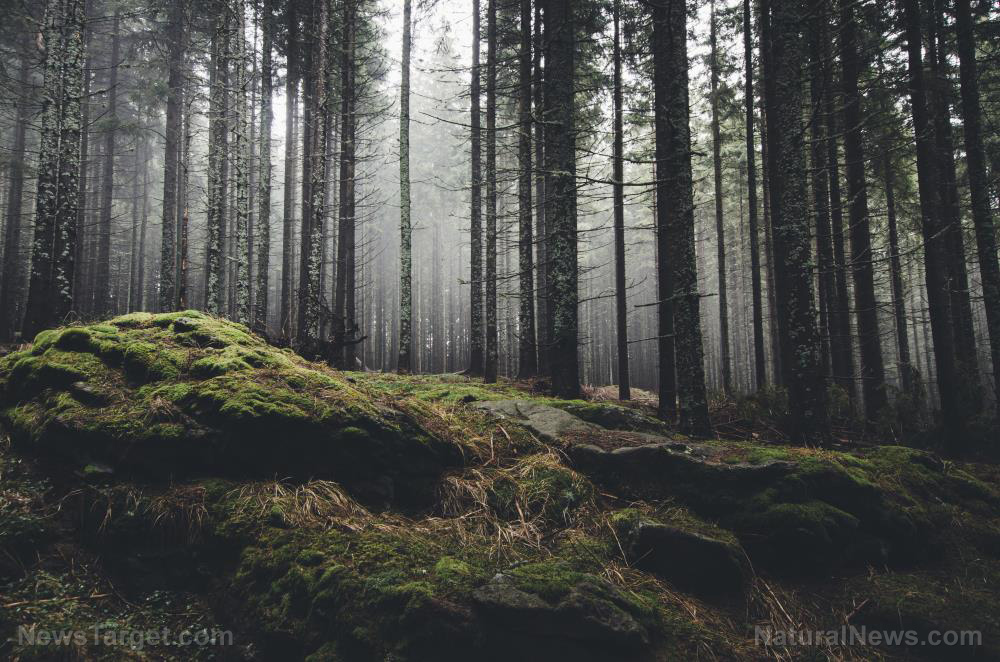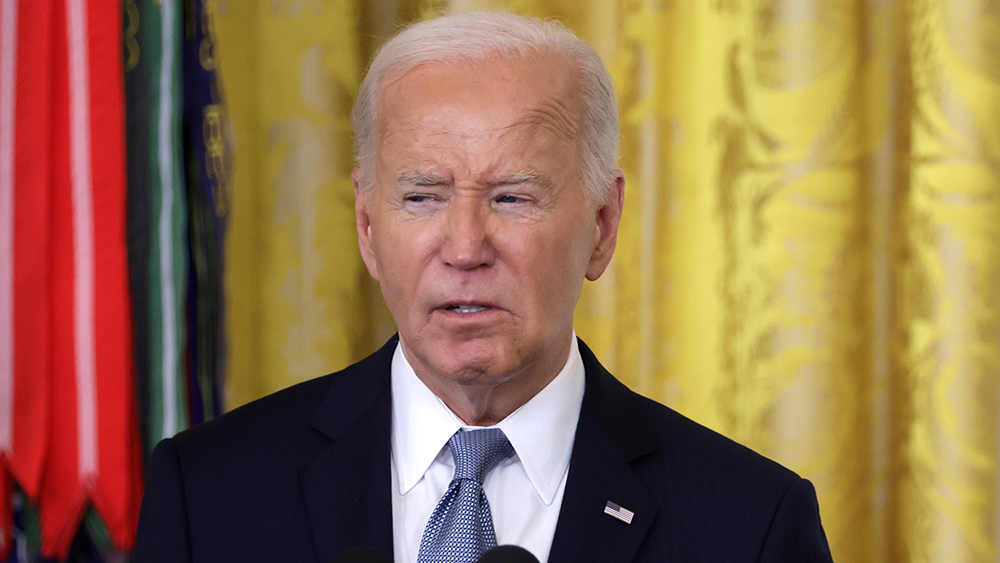Michigan planning to clear over 400 acres of state forest to build a solar farm
01/06/2025 / By Arsenio Toledo

- The Michigan Department of Natural Resources (DBR) is proposing leasing 420 acres of state forestland in northern Michigan to be cleared for the building of a solar farm.
- The project furthers Michigan’s goal of sourcing 80 percent of its power from renewable energy sources by 2035.
- The plan has sparked criticism over Michigan’s prioritization of renewable energy development at the expense of environmental conservation.
- The Michigan DNR claims it plans to use leasing revenues from the solar project to fund other natural resource management programs, including land conservation.
The Michigan Department of Natural Resources (DNR) has confirmed plans to lease 420 acres of state forestland near Gaylord to be cleared for a solar farm.
The decision, announced in late 2024, is part of a broader effort to boost renewable energy production and address the DNR’s declining revenues from traditional income sources like hunting and fishing licensing fees.
However, the plan to clear-cut forested land for solar panels has drawn sharp criticism. Opponents argue that it undermines Michigan’s climate goals and threatens wildlife habitats.
The proposed solar farm in Hayes Township, Otsego County, would be adjacent to a private solar array already under development. The site was chosen due to its proximity to a high-voltage transmission line, which officials say makes it an ideal location for renewable energy infrastructure.
Scott Whitcomb, director of the DNR’s Office of Public Lands, defended the decision, stating, “You could have a degraded site and it’s not close to an interconnect, or if it’s close to an interconnect, it might not be in a place where the grid can take the electrons.”
The project comes as Michigan races to meet its ambitious climate goals. State lawmakers passed legislation in 2023 requiring utilities to source 80 percent of their energy from renewable sources by 2035, and 100 percent by 2040.
DNR criticized for prioritizing solar development over forest and wildlife habitat conservation
However, deciding to clear forestland for solar panels has raised questions about the trade-offs between renewable energy development and environmental conservation. (Related: Locals outraged as California’s iconic Joshua trees are cut down to build a solar farm.)
State Rep. Ken Borton (R-Gaylord) was among the most vocal opponents, calling the decision “mind-numbing” and accusing the DNR of prioritizing profits over conservation.
“This deforestation will destroy habitats and effectively kill wildlife,” Borton said in a statement. “Let me make that clear, the DNR is choosing to kill wildlife so they can build solar panels.”
State Sen. Michele Hoitenga (R-Manton) echoed these concerns, stating, “The people who made this absurd decision signed up for a job to protect our natural resources. Instead, they sold us out.”
The DNR has long leased state land for various industrial uses, including oil and gas extraction, mineral mining and timber production. Whitcomb emphasized that the agency carefully evaluates potential sites for solar development, rejecting proposals that conflict with environmental priorities. For example, the DNR denied a request to build solar panels in an area known to be a habitat for the endangered Kirtland’s warbler.
Whitcomb argued that the 420-acre site near Gaylord is “less than pristine,” noting that parts of the land were previously clear-cut and replanted with red pine seedlings, while other areas host oil and gas wellheads.
Whitcomb also argued that the DNR is planning to use leasing revenues from the solar project to fund natural resource management projects, such as acquiring other land for conservation purposes.
“We don’t give this land away for free,” Whitcomb said. “That lease revenue can go into natural resources management. So, I wouldn’t say it’s the only reason, but it is something we think about.”
The controversy over the Gaylord solar farm reflects a larger struggle in Michigan to balance renewable energy development with environmental and community concerns. Local efforts to block solar projects on leased farmland have led to contentious meetings, litigation, and even recall elections. In 2023, state lawmakers shifted the permitting process for large-scale solar projects from local governments to a state-appointed panel, a move that has further fueled tensions.
Despite the backlash, the DNR remains committed to its solar leasing initiative, which aims to lease up to 4,000 acres of state land for renewable energy projects. To date, fewer than 1,500 acres have been leased for solar development. DNR Director Scott Bowen said the agency is selective in choosing sites.
“We intend to choose the right acres, in the right places, to achieve energy objectives,” he said. “It is not our intent to have widespread conversions.”
The DNR is also moving forward with its plans for the forestland near Gaylord, but the project’s future will likely depend on the outcome of public hearings and the competitive bidding process set to begin in the coming months.
“It’s a process, and we haven’t even really begun that process,” Whitcomb said. “We’ll consider public input on any potential lease.”
Watch this video discussing how Storm Darragh, which ravaged the British Isles in December 2024, completely demolished the United Kingdom’s solar farms.
This video is from the ADAPT2030 | Civilization Cycle channel on Brighteon.com.
More related stories:
The Biden-Harris administration’s solar energy subsidies are only benefiting China.
History proves wind and solar energy aren’t viable for powering the future.
Sources include:
Submit a correction >>
Tagged Under:
absurd, big government, conservation, deforestation, Ecology, environment, forests, Gaylord, green tyranny, left cult, Michigan, Michigan Department of Natural Resources, natural resources, solar energy, solar farm, solar panels, trees, wildlife, wildlife conservation
This article may contain statements that reflect the opinion of the author
RECENT NEWS & ARTICLES
COPYRIGHT © 2018 LUNATICS.NEWS
All content posted on this site is protected under Free Speech. Lunatics.news is not responsible for content written by contributing authors. The information on this site is provided for educational and entertainment purposes only. It is not intended as a substitute for professional advice of any kind. Lunatics.news assumes no responsibility for the use or misuse of this material. All trademarks, registered trademarks and service marks mentioned on this site are the property of their respective owners.




















